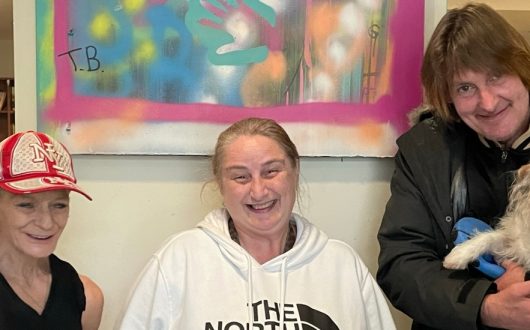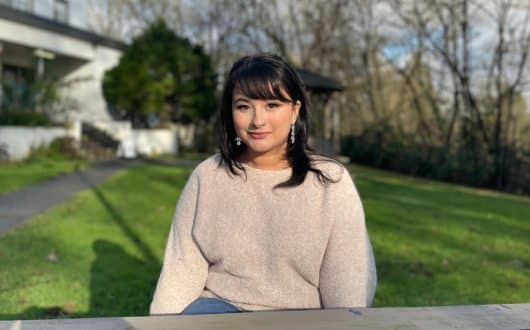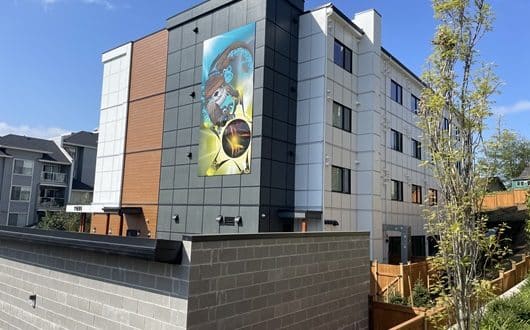The Coast Peer Support Program Reaches New Heights
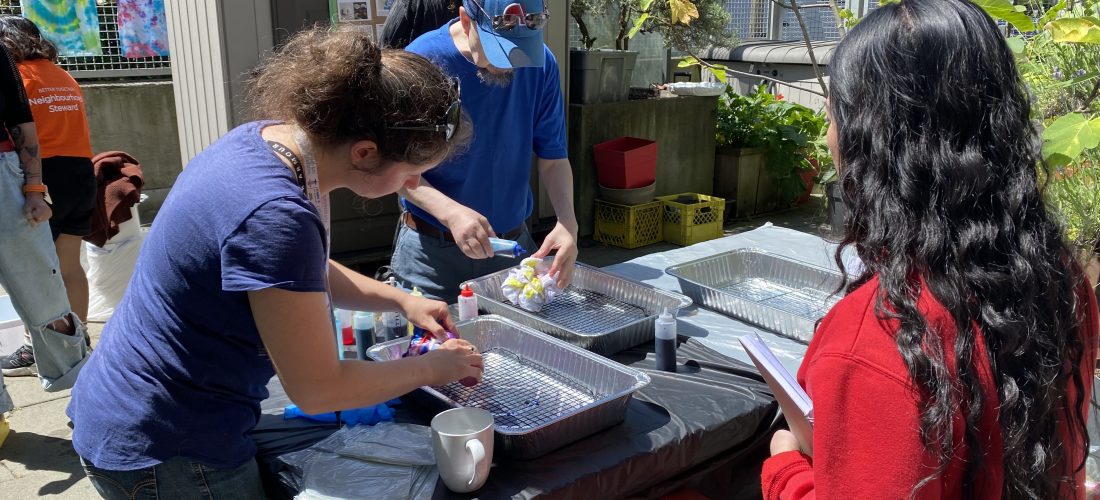
Funded almost exclusively by philanthropy through the Coast Mental Health Foundation, Coast’s Peer Support Program teaches participants how to use their firsthand experiences with mental illness and the challenges of recovery in roles that support other clients. Since 2009, the program has been offered out of the Resource Centre in downtown Vancouver. There are typically two to three cohorts a year and 10 participants in each cohort, many who are motivated to take part by their desire to give back.
“The philosophy is: I am a person with lived experience and have come to a point in my recovery where I’m able to support a peer as they start to engage in their own recovery journey,” previous program manager Fraser Mackenzie says. Fraser led the program for several years and he was joined by previous peer support coordinator Natasha Kolida, who took over training at the downtown location so that he can expand the program’s reach to Coast sites such as Alouette Heights in Maple Ridge.
The Peer Support Program has flourished under Fraser, who has purposely taken the curriculum beyond the core competencies for peer workers to encompass the unique mental health challenges faced by LGBTQ and First Nations communities. He also developed coursework around grief in mental health and diagnosis, and runs a peer support program specifically for young adults that he helped bring to Fraser Health.
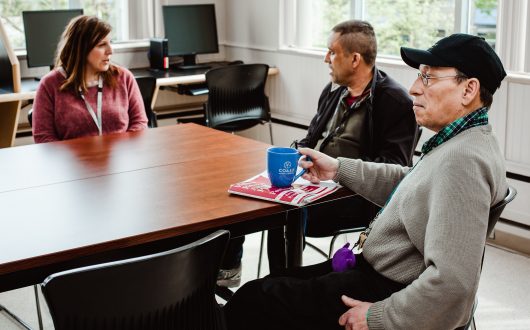
During the course of the program, he makes sure to organize class excursions, such as tandem cycling, rock climbing and even art classes.
Fraser also enjoys taking the group to the Harbour Centre Tower where they have a 360-degree view of the mountains, parks and bustling neighbourhoods that make up their home town.
It can be easy to get stuck within the few-block radius in which you live, he notes. Sometimes, it takes seeing your home from an different perspective to engender a greater sense of community – and what better way to do that than from nearly 500 feet above the ground?
Fraser’s goal with any cohort is to utilize the wisdom and experiences of the participants in the room to guide the course discussions. “It’s about feeling comfortable and safe enough to be yourself and to acknowledge you’re with people with whom you have things in common,” he says. “Once that trust is there, you have hope.”
Many of the program’s graduates go on to be employed by Coast, including two who assist in the peer program itself. One graduate lead Coast’s past gardening program, which was started by a horticultural therapist, and another peer support worker was employed by St. Paul’s Hospital as well as St. Helen’s Residence, where she completed her practicum.
Fraser says the Peer Support Program honours each client’s lived experience as an incredible tool with remarkable strength. “It’s one person saying to another, I don’t know exactly where you’re at but I’ve been through something similar.”
Please contact us at peersupport@coastmentalhealth.com for more information.
